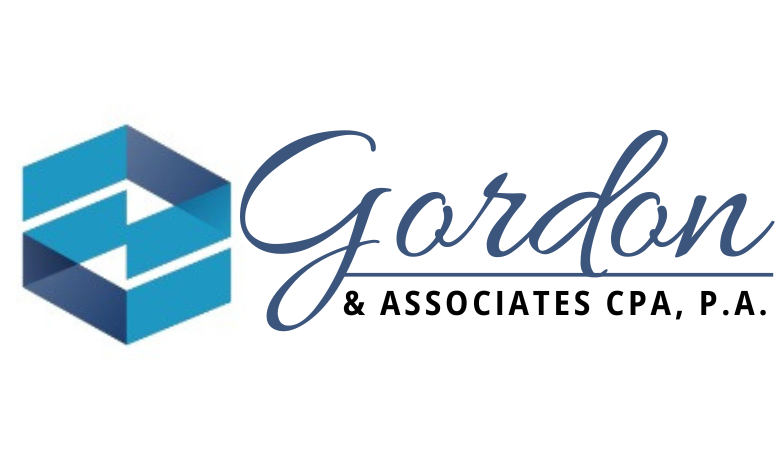Conducting a Comprehensive Year-End Financial Review:
A Guide for Small Business Owners

The end of the year is an ideal time for small business owners to reflect on their financial performance and plan for the future. A thorough year-end financial review not only helps you assess the health of your business but also identifies areas of strength and opportunities for improvement. Here’s a step-by-step guide to help you conduct a comprehensive financial review and position your business for success in the coming year.
1. Gather Your Financial Documents
Start by compiling all necessary financial records to get a clear view of your business’s performance. These include:
- Income statements
- Balance sheets
- Cash flow statements
- Bank and credit card statements
- Tax records
- Accounts receivable and payable reports
Tip: Use accounting software to generate these reports quickly and ensure accuracy.
2. Analyze Revenue and Profitability
Evaluate your revenue streams to identify which products or services contributed the most to your income. Assess your profitability by calculating your gross profit margin and net profit margin.
Key Questions:
- Did revenue meet your projections?
- Which revenue streams were most profitable?
- Were there any unexpected spikes or dips in income?
Action: Focus on strategies to enhance high-performing areas and address underperforming ones.
3. Review Operating Expenses
Examine your operating expenses to identify trends and potential savings. Categorize expenses into fixed and variable costs, and pinpoint areas where spending can be optimized.
Key Questions:
- Are any recurring expenses unnecessarily high?
- Are there subscriptions or services you no longer use?
- Did variable costs align with revenue fluctuations?
Action: Negotiate better terms with vendors or eliminate unnecessary expenses to improve your bottom line.
4. Assess Cash Flow Management
Cash flow is the lifeblood of your business. Review your cash flow statement to understand how money moved in and out of your business over the year.
Key Questions:
- Were there periods of cash flow shortages?
- Did late payments from clients impact your operations?
- Were you able to maintain a cash reserve?
Action: Implement strategies like incentivizing early payments, reducing inventory holding costs, or securing a line of credit to ensure smoother cash flow.
5. Evaluate Debt and Liabilities
Review your debt obligations to ensure they are being managed effectively. This includes loans, credit lines, and accounts payable.
Key Questions:
- Are you meeting debt repayment schedules?
- Can any high-interest debts be refinanced?
- Are liabilities growing faster than assets?
Action: Develop a plan to reduce debt and improve your debt-to-equity ratio.
6. Monitor Tax Obligations
The year-end review is an excellent opportunity to assess your tax strategy. Review estimated tax payments, deductions, and any potential liabilities.
Key Questions:
- Have you maximized all available deductions?
- Are there any outstanding tax payments?
- Do you need to adjust estimated taxes for next year?
Action: Work with a tax professional to identify additional tax-saving opportunities and ensure compliance.
7. Examine Key Performance Indicators (KPIs)
Analyze financial and operational KPIs to gauge overall business health. Common KPIs include:
- Gross margin
- Net profit margin
- Customer acquisition cost
- Inventory turnover ratio
Key Questions:
- Did your business meet its financial goals?
- Are there any trends that warrant deeper investigation?
- Which KPIs need improvement in the coming year?
Action: Set measurable targets for each KPI to track progress throughout the next year.
8. Plan for the Future
Use insights from your review to create a roadmap for the coming year. Align your budget and financial strategy with your business goals.
Key Steps:
- Set revenue and expense projections.
- Identify new investment opportunities.
- Develop a contingency plan for financial challenges.
Tip: Schedule regular financial reviews (monthly or quarterly) to stay on track throughout the year.
9. Seek Professional Guidance
If the year-end review feels overwhelming, consider enlisting the help of a CPA or financial advisor. A professional can provide expert insights, help identify opportunities, and ensure your financial strategy is sound.
Conducting a year-end financial review is a critical step for small business success. By evaluating your financial performance, identifying strengths and weaknesses, and setting clear goals for the future, you can start the new year with confidence and clarity.
Subscribe to our newsletter to receive our latest blog directly to your inbox.
- Common Documentation Gaps That Delay Tax ReturnsDocumentation in a Nutshell Every tax return must be supported by records that substantiate income, expenses, deductions, and asset activity. When documentation is incomplete, preparation slows and the risk of error increases. Why Documentation Is Critical Proper documentation: The IRS and state agencies do not accept intent—they require evidence. Most Common Documentation Gaps 1. Missing… Read more: Common Documentation Gaps That Delay Tax Returns
- Preparing for Tax Filing When Your Records Aren’t Perfect
 Tax Readiness in a Nutshell Many business owners enter tax season knowing their records are “not perfect.” While perfection is not the standard, accuracy, substantiation, and consistency are. Filing based on incomplete or unclear information can lead to misstatements, amended returns, penalties, or unnecessary follow-up with taxing authorities. Why Imperfect Records Matter for Compliance Incomplete… Read more: Preparing for Tax Filing When Your Records Aren’t Perfect
Tax Readiness in a Nutshell Many business owners enter tax season knowing their records are “not perfect.” While perfection is not the standard, accuracy, substantiation, and consistency are. Filing based on incomplete or unclear information can lead to misstatements, amended returns, penalties, or unnecessary follow-up with taxing authorities. Why Imperfect Records Matter for Compliance Incomplete… Read more: Preparing for Tax Filing When Your Records Aren’t Perfect - Post–Year-End Cleanup: Financial Tasks You Should Not Skip
 Once the year ends, many business owners want to move on quickly. However, skipping post–year-end cleanup can create problems months later. A short cleanup now prevents long-term headaches. Why Post–Year-End Cleanup Matters Proper cleanup: Essential Cleanup Tasks 1. Reconcile All Accounts Ensure bank accounts, credit cards, and loans are fully reconciled. 2. Review Uncategorized Transactions… Read more: Post–Year-End Cleanup: Financial Tasks You Should Not Skip
Once the year ends, many business owners want to move on quickly. However, skipping post–year-end cleanup can create problems months later. A short cleanup now prevents long-term headaches. Why Post–Year-End Cleanup Matters Proper cleanup: Essential Cleanup Tasks 1. Reconcile All Accounts Ensure bank accounts, credit cards, and loans are fully reconciled. 2. Review Uncategorized Transactions… Read more: Post–Year-End Cleanup: Financial Tasks You Should Not Skip

